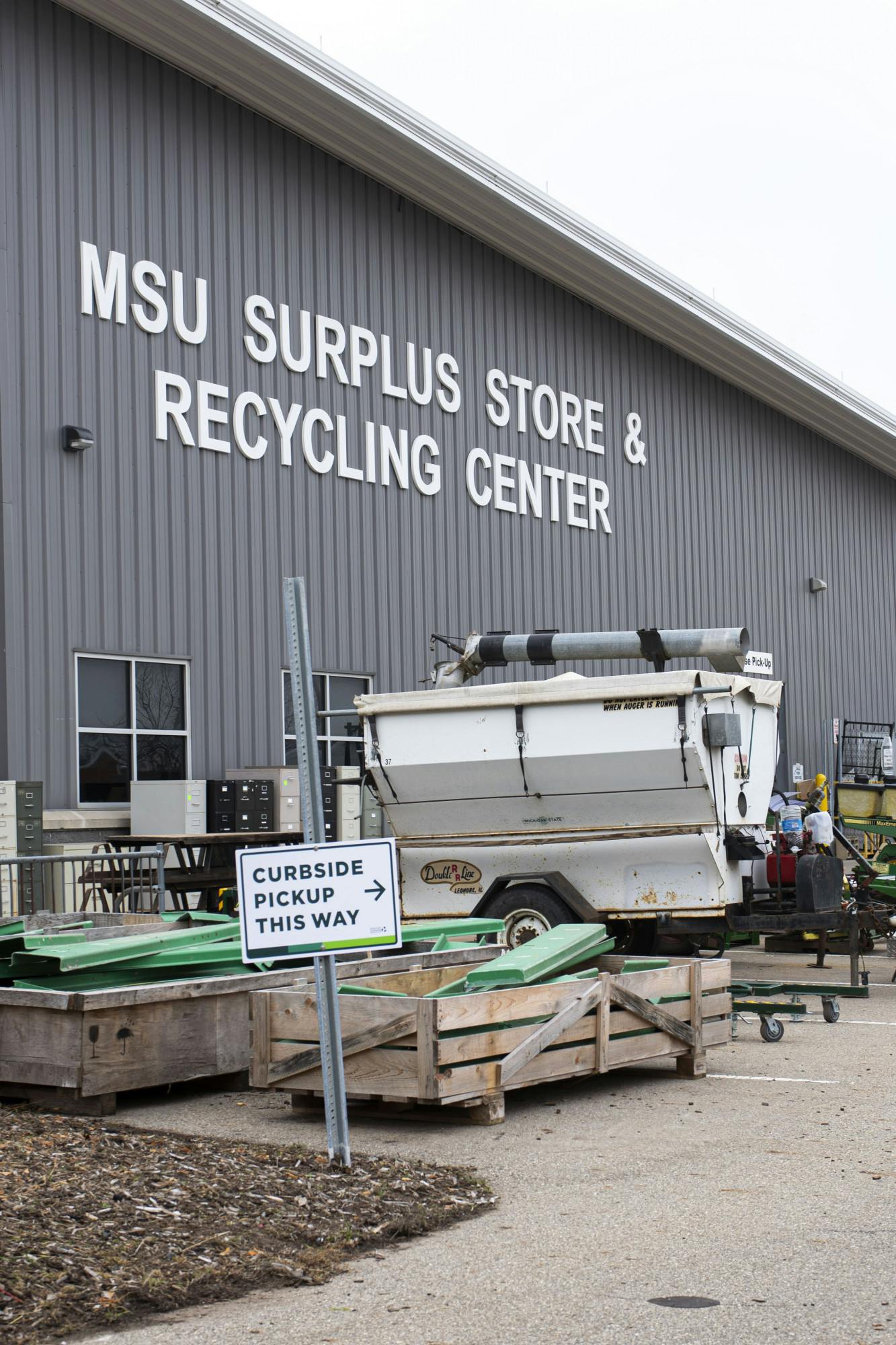In response to the COVID-19 pandemic and reductions in staffing, the Michigan State University Surplus Store and Recycling Center has reduced the different types of plastic they accept to number one and number two type plastic bottles and jars. Before, they accepted all number one through number seven plastic types.
“Since we don’t have students working for us right now and we’re at reduced staffing, we had to cut back on some of the processing of recyclables that we do at our Material Recovery Facility," MSU Recycling Coordinator Dave Smith said. "And because of that, we've had to scale back on some of the types of plastic that we accept.”
Before the pandemic, three full-time staff members and 30 student employees, 10 per shift, worked in the recycling department. Now, there are only two student employees working.
Student employees in the recycling department work on the sort line in the Material Recovery Facility (MRF) to separate the number one plastics from the number two plastics. After the plastic is separated, it is pushed through a machine called a baler. The baler condenses the plastic into 1,500-pound cubes so they can be sold. A company in Dundee, Michigan, buys this plastic and turns it into new water bottles.
According to the drop-off center guide, water bottles, beverage bottles, condiment bottles, non-hazardous cleaning products, containers and laundry detergent containers are some of the number one and number two plastics that are accepted. Drinking cups, frozen food trays and containers for take-out meals are not accepted, though they are considered number one and number two plastics.
Smith said they don’t accept all number one and number two plastics because it is difficult to find buyers for plastics like frozen food trays.
“It’s not that those plastics aren’t recyclable," he said. "I mean just about anything, in theory, can be recycled, but it’s not always easy to find somebody that wants to purchase those plastics from you."
While the MSU Surplus Store is only accepting number one and number two plastics, the city of Lansing’s drop-off site accepts all number one through number seven plastics except number three plastic.
There are still trucks that are sent to campus daily to pick up recycling even though volumes are low. Not every building gets a pickup every day. The trucks go to the occupied residence halls three times per week. Pickups for other buildings around campus vary from weekly to biweekly.
Although recycling is different this year, Residential and Hospitality Services (RHS) Sustainability Officer Carla Iansiti works to make sure that the MSU community continues to recycle.
“We’re doing more of a personal approach as opposed to signs all over the place, but we are definitely recycling,” Iansiti said.
Iansiti also works with Eco Reps to encourage people on campus to recycle. Eco Reps are a group of 18 students who help with sustainability efforts on campus. They are a driving force for “Keeping MSU green.”
Student Sustainability Assistant for RHS Holly Pummell runs the Eco Reps.
“I think that overall students in this generation are interested in sustainability let alone, so they’re willing to learn about recycling,” Pummell said.
Since going virtual, the Eco Reps have seen more engagement than before.
The sustainability office updated signs around campus to correspond with plastic collection being reduced, but Iansiti said they are using social media more this year.
“We definitely are getting a lot more interaction with people checking out web pages because they’re home,” she said.
Support student media!
Please consider donating to The State News and help fund the future of journalism.
Discussion
Share and discuss “MSU Surplus Store accepting less plastic options” on social media.







